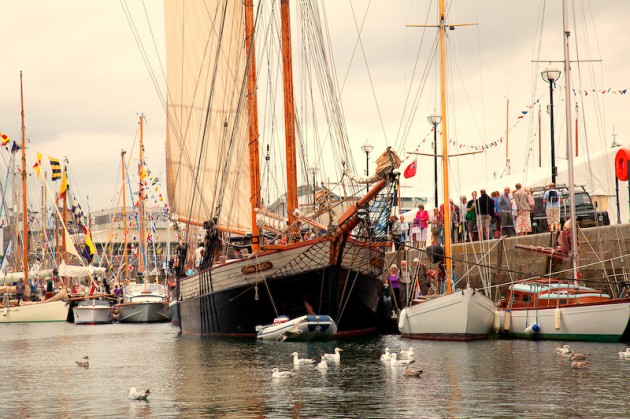The RYA is 'progressing positively' after a change of tack
The Royal Yachting Association (RYA) has changed tack with its opposition stance to a Government proposal to give unrestricted powers to harbour authorities.
The RYA is concerned that the proposed extension of harbour authority powers under the
Marine Navigation (No.2) Bill provides no safeguard for harbour users.
However, after its petition to amend the Bill with a statutory safeguard met with reluctance, the RYA is now ‘progressing positively’ through discussions with the British Ports Association, UK Major Ports Group and Chamber of Shipping to develop a non-statutory mechanism that would address RYA concerns.
The mechanism, or code of conduct, would provide harbour users with a means of challenging proposed harbour directions through the local Port User Group and if no resolution can be found, organisations such as the RYA or the Chamber of Shipping would be able to refer the disputed directions to an independent third party.
Gus Lewis, RYA head of Government affairs, said: ‘The code would provide a form of check and balance to govern the exercise of the power by individual harbour authorities and offer a practical framework for the review of inappropriate and unjustified directions.
‘Our preferred solution would have been for a statutory safeguard to be included on the face of the Bill.
‘However, it is becoming clear that neither the Government nor the Opposition are keen to amend the Bill.
‘The Bill does contain many positive measures and has strong cross-party support but any amendments could delay the Bill such that it runs out of Parliamentary time, which neither the Government nor the Opposition wants to happen.’
The Bill had its second reading in the House of Lords on 18 January 2013. The RYA briefed Peers in advance of the reading on its concerns that the Bill proposes to give harbour authorities unchecked power to create criminal offences.
A number of Peers supported the RYA’s concerns during the second reading debate and the need for a mechanism such as a code of conduct was recognised.
The RYA has not been alone in expressing its concerns about elements of the Bill. Other organisations within the maritime sector have opposed parts of the Bill and like us are disappointed by the Government’s reluctance to consider making amendments to the Bill.
However, the RYA is encouraged by the progress of discussions with the British Ports Association, UK Major Ports Group and the Chamber of Shipping.
RYA concerns are with Clause 5 of the Bill which would confer on designated harbour authorities the power to give ‘harbour directions’ to ships – including recreational craft – within their harbours. Failure to comply with the direction would be a criminal offence.
The Bill creates no checks and balances to govern the exercise of power by individual harbour authorities and no practical recourse or remedy for the review of inappropriate and unjustified directions.
Click here to read more about the Marine Navigation (No.2) Bill.




